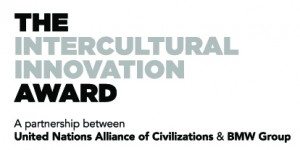Australia is a country where people from very different cultural, ethnic and national backgrounds live together, build a common future and improve their society. National coherence has become one of the key goals of multiculturalism in Australia.Given this environment, why is it that people from certain ethnic and cultural backgrounds are less represented in mass media than people from other ethnic backgrounds? This state of affairs sometimes raises curiosity about the underrepresented groups, but more often it leads to indifference to their needs, prejudice, and uncertainty about them in the cultural and social sphere.
There are several ethnic groups in Australia which rarely appear in the media. And among them are Russians in Australia. At the present time there are so many articles and talk shows about Russian international politics, but we never hear voices of everyday people from a Russian background who live on the same street with us, go to the same shops, work and study with us. Why did they come to Australia? Which place in Australian society is occupied by new Australians with Russian roots?
It is important to note that the wave of Russian immigration from the transitional Russia of the 90s, who witnessed the period of crisis and restructuring of the economy after the collapse of the Soviet Union, hasve adopted a particular trait to rely only on themselves. It shapes the image of Russians in general as a resilient nation with mentally and physically strong representatives. Such self-sufficiency in making decisions and building one’s own life makes young people from a Russian background, first, devoid of illusions that life is an endless fairy tale where everything is always smooth, and second, the experience of growing up in the new Russia teaches them to rely on their own strength and to look for flexible ways out of difficult or stressful situations.
Many stories of success of Russian immigrants in Australia started with hard work, openness to change and self-belief. Unfortunately, the flip side of this particular mindset is the difficulty in building group relationships between different generations of Russian immigrants and as a result, there is no solid Russian community, which on behalf of the group would help Russian immigrants in Australia to address domestic issues, organise events with Russian cultural flavor and present itself as a group with a common cultural identity.
I talked to three young Russian Australians. Let me shortly introduce our heroes. Bogdan, Natalia and Olga have the same background: they came from the new post-soviet Russia.
Bogdan
Bogdan represents the newest generation of Russian immigrants. He is still in the process of immigration to Australia. In his past Bogdan graduated from the college in England, lived in Russia, England and the Czech Republic and then decided to try Australia, where he was able to study for a Bachelor of Business,  Management and Finance at Bond University.
Management and Finance at Bond University.
Bogdan thinks that business education is very practical and reality-oriented in Australia. Therefore it maintains a high standard and prepares students to start their professional life on a relatively high level right after graduation from the university.
In addition to his studies at Bond University Bogdan periodically participates in different socially-oriented initiatives. For example, as a volunteer, he helped to organisze a charity race at his university to raise funds for the Heart Foundation. This organization funds life-saving heart research, and works to improve heart disease prevention and care for all Australians. Currently Bogdan helps with the creation of business plans for the organisation, which aims to help people with mental illness so that they had the opportunity to start a business.
Thinking about the future, Bogdan, like many young representatives of his generation, who came from Russia to build a better life in Australia, knows exactly what he wants: to gain financial independence and build a career in order to be able to help his loved ones in Russia. Setting goals and striving for success, he does it for the sake of others, and, is willing to work hard and benefit Australia. Like all young people who have left their home country chasing a dream, he has a plan for the future.
Bogdan: “The main goal is, of course, to begin to build a career, because there is a responsibility for the family, responsibility for myself, and responsibility to build a financial fundament for the future of me, my parents and future family. Plus I’m determined to help my family.”
Natalia
Natalia  first come to Australia in 2000. Before immigrating, she studied in England. During her life in Australia Natalia transited to the Australian environment, graduated from the university, took part in social initiatives, and found a job. Currently she is the Chief Executive Officer position of a membership-based organisation in the health sector.
first come to Australia in 2000. Before immigrating, she studied in England. During her life in Australia Natalia transited to the Australian environment, graduated from the university, took part in social initiatives, and found a job. Currently she is the Chief Executive Officer position of a membership-based organisation in the health sector.
Now Natalia feels more Australian than Russian, however, the strength and resilience which formed the core of her personality during the childhood in Russia help her in life here.
Natalia came to Australia to work hard and do well and found out that this really works in Australia. She was very determined to be successful in life and didn’t let herself relax as much as others could. She thinks being from Russia was a real advantage, because of her strict past in the soviet-model school environment where children learn to be street-smart.
Natalia: “When you experience moving from one country to another one, you need all your smarts to adjust in the place you are. When you first come and don’t know anyone you are trying to meet people and to understand what to do. That makes you very strong, but also quite flexible. You don’t have to be a rock, you become like a river. And you learn quickly under pressure, you just flow over obstacles.”
Natalia also believes that it is important to contribute to the society in which she lives. For 6 years she was on the Management Committee for NSW at Australians of Native Title and Reconciliation. This is a civic organization that supports the rights of Aboriginals and Torres Strait Islanders within Australian society. Natalia organised a Parliamentary Greeting Event for Aboriginal people in the New South Wales Parliament and hoeld responsibilities of a treasurer for this organisation.
Natalia: “I believe that issues experienced by Aboriginal people in Australia are severe and unjust. I think as an immigrant to this country I don’t have to be blinded by some episodes of the history by which some Australians have been blinded. Because of growing up in this country they cannot see the injustice that is still faced by Aboriginal people. But I didn’t grow up with it and these problems are obvious to me. I think that it is important to volunteer on issues that are close to your heart if you are going to contribute to the country in which you live. And for me it’s a social injustice and issues of human rights.”
Olga
Olga moved to Australia 5 years ago charmed by this unique and distant country during her studie s in English
s in English
school. Coming through different stages of immigration, Olga has realized the uniqueness of her Russian cultural identity and opened “IZBA Russian Treats” which is a Russian-flavored bakery located in Sydney. Through theis business Olga opened the channel to Russian cuisine and culture for Australians who wants to try something new and start discovering a distant Russia.
Olga believes that all barriers are in your mind. If you really want to achieve something, all is in your hands. Australia contains a lot of opportunities and it is very important to step across your fears and start trying something.
Olga: “Our generation grew up in the country where life wasn’t easy at that time. We came through the disintegration of the Soviet Union, crisis in all spheres of life in 90s, restructuring of Russia…It is fair enough to say that we’ve seen a lot of restless times. And I think that this gave us a more realistic view of life. We can easier adjust to different situations. I mean, we are able to respond more flexibly to certain things, to get used to any kind of situations. Maybe, because of this side of Russian mentality we are stronger in difficulties. Additionally, Russian culture exists for many centuries and that influences our perceptions of reality, that gives us a bigger perspective. I feel that all expats from Russia and former Soviet Union have this advantage of great and long-standing Russian culture which gives them a specific perspective of life.”
Relying on themselves and inspiring others by their own example, the founders of “IZBA Russian Treats” help schools in their business district, act actively as representatives of small businesses on different professional forums and promote Russian culture supporting such cultural initiatives like Russian Film Festival.
Being Russian as well, I personally share the idea of our heroes that we have to be persistent and goal-oriented in our work, be open to new ideas and cultures and help the society where we live to become a better place. As one of my interlocutors noticed, from whatever background a person is, there are always some strengths from the culture that you have. Only through acceptance of yourself and your background, acceptance and understanding of other cultures, do you have a chance to live harmoniously in multicultural Australia.



this was very helpful. Thank you very much
Thank you.
very helpful for my projects